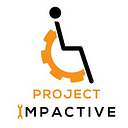How is covid-19 affecting learners with disabilities?
The COVID-19 pandemic brought about huge changes in how education was delivered to students. For many, these adjustments were seen as a nuisance. However, some changes brought about by lockdown made life easier for certain students with disabilities.
A report by the UCL Disabled Students’ Network in 2020 brought to light many issues faced by UCL’s disabled students. Traveling to and from class can be so physically and mentally exhausting that, by the time they arrive, they are too fatigued to effectively participate. Additionally, according to the report, many UCL buildings are not adequately accessible, and several students’ module leaders were “unaware” of students’ Summaries of Reasonable Adjustments.
Because of these issues, disabled students have lobbied school administrations for years to let them attend their courses electronically. At UCL, the LectureCast system is offered only from certain classrooms and by certain departments. It wasn’t until fully abled students’ access to education was threatened by the pandemic that interactive virtual lectures suddenly became available to all students. Lectures were delivered via Zoom, exams proctored online, and group projects conducted virtually. Almost overnight, the standard became exactly what disabled students had been requesting for years.
Now, plans are in place for in-person learning to begin again, and there is a chance that the end of lockdown will also mean the end of accessible learning. Students may be told that they once more have to physically attend lectures, meetings, and exams. For departments not using LectureCast, students will have to once more make the journey to campus and learn in buildings that may or may not be fully accessible to them.
Carina Graham
Writer, Marketing Team
Project Impactive
